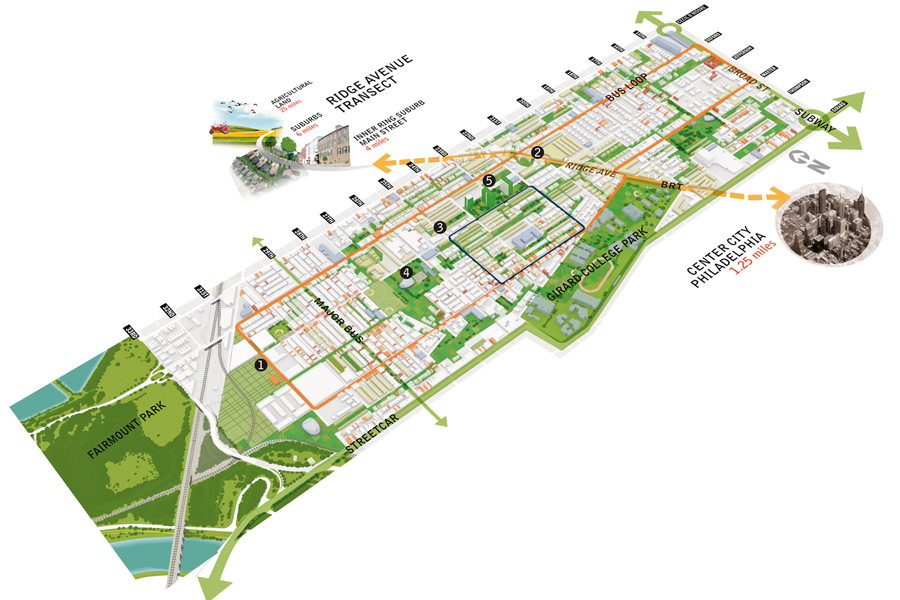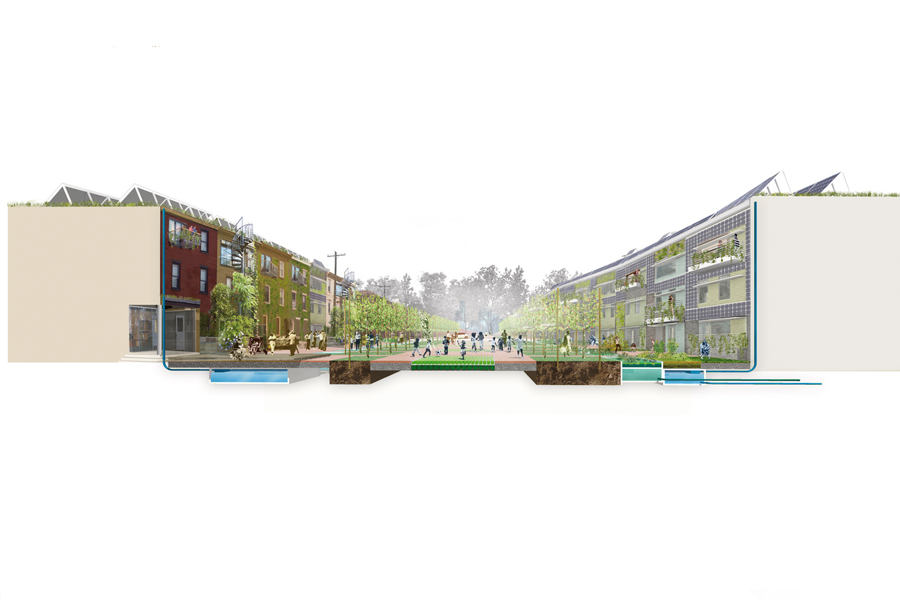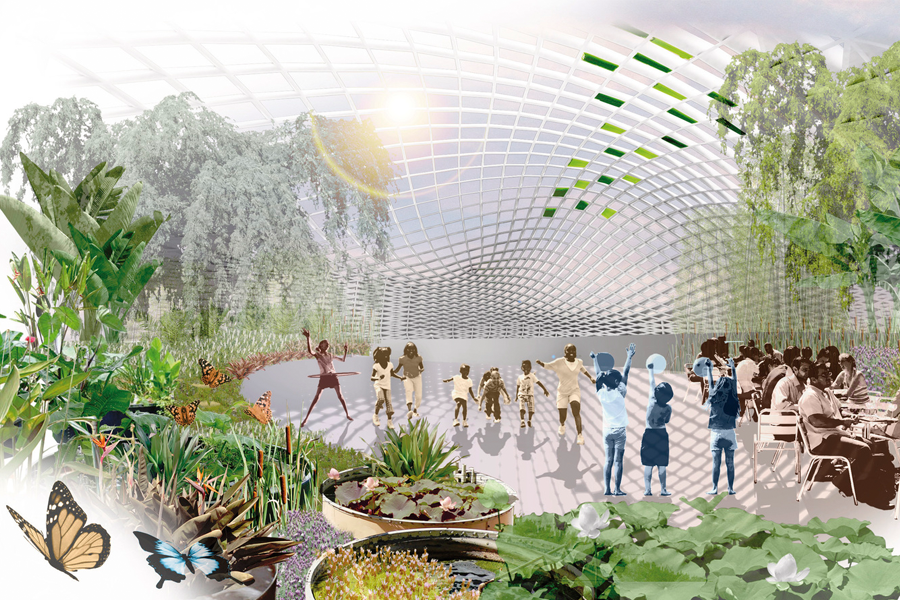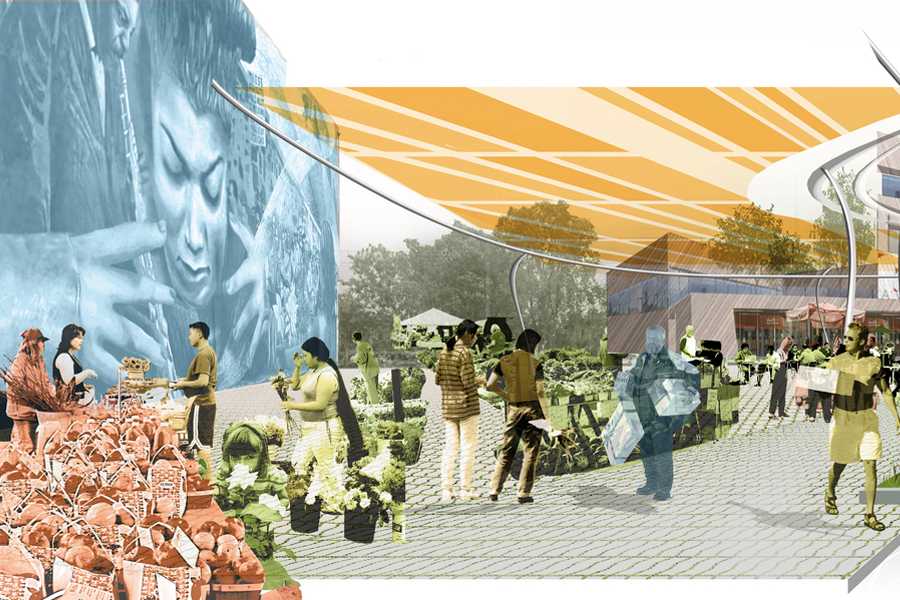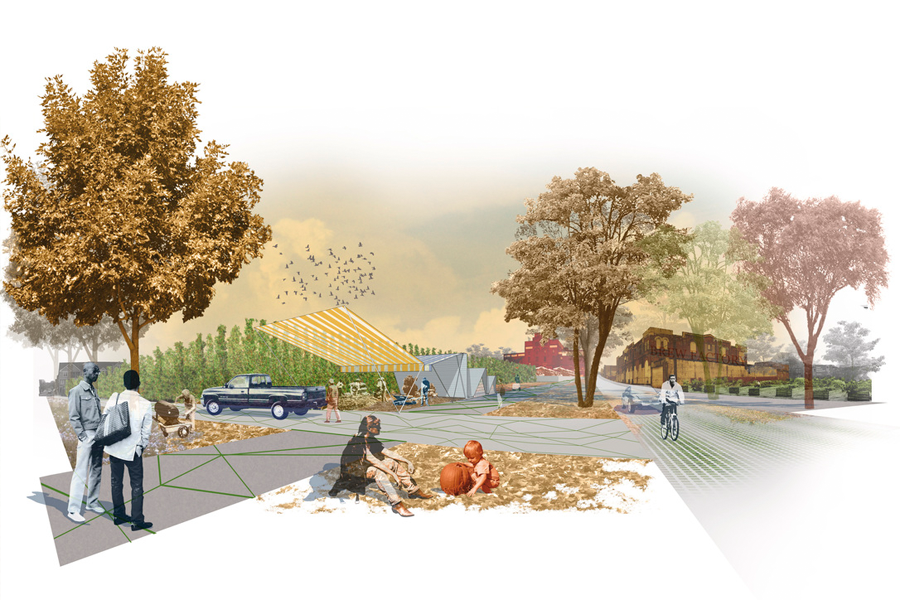Patch\Work Living City Design Competition
The OLIN team’s award-winning submission to the Living City Design Competition responded to ambitious standards of sustainable development within the historically rich yet socially and ecologically underserved Philadelphia neighborhoods of Brewerytown and North Central. Working closely with architects Digsau and planners Interface Studio, OLIN explored how sustainable design can be implemented within an existing urban framework by utilizing local resources, community engagement, and respect for vernacular architecture and culture.
Using an “evolving block” strategy, incremental and achievable improvements are phased over a 25-year span. To achieve 100 percent on-site renewable energy for thousands of households, homes are retrofitted with façades of photovoltaic panels, and the commercial spine along Ridge Avenue is shaded with solar power-collecting canopies. Existing rowhomes are retrofitted, renovated or replaced, with the materials left over from demolition supplying more than 30 million bricks and three million square feet of wood for projects elsewhere in the neighborhoods. Rain gardens and roof cisterns combine with district-level “living machine” water treatment centers to reduce the neighborhoods’ per capita potable water consumption from 69.3 gallons per day (the amount used by an average American) to 9.2 gallons. This also eases demand on the city’s combined sewer system. Vacant parcels are repurposed into a network of parks, play areas and community gardens. Local jobs are created with refurbishment of the long-abandoned Red Bell Brewery. Its operations, combined with local urban farms, contribute to the goal of providing 80 percent of the district’s food from locations within a 500-mile radius.
Location
Philadelphia, PA
Owner
International Living Future Institute
Status
Design completed 2011
Key Team Members
Skip Graffam, Partner-in-Charge
Richard Roark, Associate
Ryan Buckley, Landscape Designer
Awards
2011, Cities That Learn Award, International Living Future Institutes
